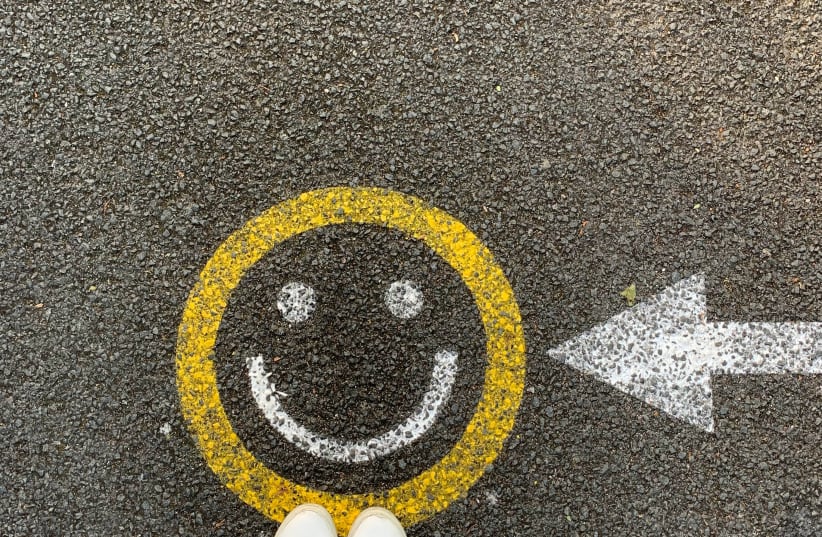What exactly do we need to do to make ourselves feel happier, stronger and more balanced?
Naturally, as this question can't be answered unequivocally, a group of academics initiated a unique process to come as close as possible to a sharp and clear conclusion in this complex discussion.
Dr. Steven Hayes is a psychologist and lecturer in the Department of Psychology at the University of Nevada. In an article in Psychology Today, he outlined the first academic work of its kind that he led with a group of international researchers.
They went through more than 54,000 studies in an attempt to understand what the most important factors are that contribute to improving mental health.
Hayes said that this was a huge task which required the work of about fifty people over the past four years. Jokingly, it was referred to as the "Death Star Project" because just like the space station in the Star Wars movies, this project was huge, took forever to complete and (hopefully) would have a great impact on the way psychotherapy is perceived.
The study findings, which Hayes called surprising, were published in the scientific journal Behaviour Research and Therapy. According to him, many paths can lead to change, which can benefit different people in different contexts. However, their surprising finding is that one set of skills proved to be far more effective than any other factor in this process.
He even added that, surprisingly, this set of skills was even more important than emotional support and appreciation received from family, friends and what was learned in treatment.
Hayes also noted that this set of skills was also helpful for those who suffered from negative thoughts and destructive patterns that greatly affected their functioning and made them believe they couldn't change.
The two most important skills to develop in order to strive for change
The comprehensive review showed that people who develop mental flexibility and awareness can significantly improve their mental state.
According to researchers, these two skills accounted for almost 45% of factors that made therapy successful. And that's not all: Hayes clarified that when the analysis included additional concepts that are similar to flexibility and awareness, such as self-compassion, internal motivation and sensitivity to anxiety, all these accounted for almost 55% of factors that positively affect the therapeutic process.
These findings can bring a great deal of optimism to anyone who strives to improve their mental health. This is because the factors identified can definitely be developed and strengthened over time if you understand and pay attention to their importance.
Hayes said in this context that even people who suffer from chronic anxiety, depression, addiction or any other complex struggle can perform a series of actions, alone and with the help of therapists, to improve mental flexibility and awareness and reduce the intensity of mental challenges.
The three pillars of flexibility and awareness
The concepts mentioned can seem very abstract and confusing to those who haven't had therapy. To know them, Hayes suggests breaking them down into three factors, which he calls the pillars of psychological flexibility.
1. Conscious thinking
This is the ability to pay attention to what is happening to us here and now - what thoughts appear? What feelings? How does the body feel and how do our emotions affect us?
According to Hayes, the here-and-now isn't experienced with words alone; it must be experienced through the senses. This is the difference between talking about the taste of an orange and actually tasting the fruit, which provides a richer experience.
Instead of being occupied with our thoughts, awareness teaches us to be present and over time, also to direct the mind, expand it and focus on other aspects of the experience. Hayes says that yoga and meditation helps to improve this skill which later makes it possible to navigate more easily in complex situations and crises.
2. Openness
Openness allows us to bear complex experiences, thoughts and feelings just as they are, without wanting to change or run away from them.
This requires fighting our intuition since no one wants to experience things they don't like, but the attempt to escape and hide is exactly what intensifies our challenges.
The more we try to eliminate the pain, the more it will dominate our lives. Openness helps us stop the internal struggle and allow thoughts and feelings to be exactly what they are, without them having to control us.
Ironically, when doing this, thoughts and feelings can change and move in a more positive direction.
3. Making informed decisions
We can know what's important to us and take steps that will advance us towards the goals, objectives and values we strive for.
Ultimately, the goal is to develop the ability to make more conscious decisions instead of being carried away by emotions, fears or social situations over which we have no control.
Hayes concluded that when we have clarity about what's important, we can take different actions to build sustainable habits and have a greater degree of meaning, balance and control in life.

